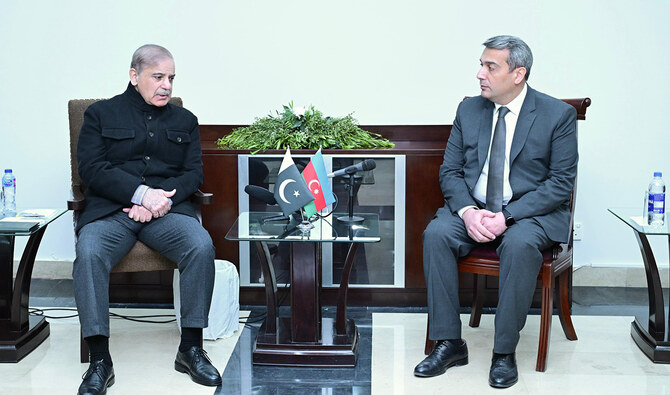ISLAMABAD: The Election Commission of Pakistan (ECP) has tentatively declared 55 percent of polling stations for upcoming elections as “sensitive” or “highly sensitive,” the regulator told Arab News on Tuesday, with experts suggesting additional security forces be deployed to boost voter confidence but cautioning personnel to take a “non-aggressive and non-intimidating” approach.
The ECP has established 92,353 polling stations across the country for general elections due on Feb. 8, with 51,047 labeled sensitive or highly sensitive (30,441 sensitive and 20,606 are highly sensitive). In Pakistan, polling booths are usually marked sensitive in areas with a record of militant or other types of violence.
“Police in each district have devised a comprehensive security plan on the basis of the current situation and past history and categorized the status of stations as normal, sensitive and highly sensitive and accordingly deployment of security personnel will be made,” the ECP told Arab News in a statement.
Elections in the politically and economically troubled South Asian nation were originally due to be held in November, 90 days after the dissolution of the lower house of parliament in August, but were delayed to February due to the fresh demarcation of constituencies under a new census. Pakistan is currently being run by a caretaker government under interim Prime Minister Anwaar ul Haq Kakar that is meant to oversee a general election.
In the run up to the polls, a spike in militant attacks has raised growing concerns about security arrangements. Last week, a candidate campaigning door to door was shot dead in the northwestern Khyber Pakhtunkhwa province, while another candidate for the National Assembly from the southwestern province of Balochistan was seriously injured in a separate armed attack.
Last week the senate passed a non-binding resolution to further delay the elections, citing security concerns and a harsh winter in northern areas, but the ECP said on Monday it would not delay polls.
Ahmed Bilal Mehboob, president of the Islamabad-based think tank PILDAT, said sensitive polling stations required extra security measures including the presence of police and other law enforcement agencies.
“Presence of security forces outside the polling stations is generally useful as it inspires confidence of voters that peace will be maintained,” he told Arab News. “Security forces need to be non-aggressive and non-intimidating and ECP should make sure that some minimal training or briefing should be conducted for them.”
Former ECP secretary Kanwar Dilshad said the election regulator determined sensitive and highly sensitive polling stations after consultations with the interior ministry, security institutions, intelligence agencies, provincial home departments, and concerned returning officers (RO).
“The primary factors considered include the potential threat of terrorism and the risk of confrontations between two or more groups,” he told Arab News.
Entire constituencies were not declared sensitive, he explained, but only certain polling stations in each constituency where security concerns prevailed.
“For these polling stations, there is a slight increase in police deployment for sensitive areas and a slightly higher deployment for highly sensitive areas,” Dilshad said.
Other than police, paramilitary forces and Rangers’ presence was intensified at such polling stations, with standby forces stationed approximately two kilometers away to address any “unforeseen situations,” Dilshad added.
Election expert Muddassir Rizvi, the chief operating officer at the Free and Fair Election Network (FAFEN), said there was no evident direct relationship between turnout or outcomes at a constituency and the number of polling stations designated as sensitive.
“But actual violence itself affects the election outcome in multiple ways, for example if violence erupts at a polling station, polling halts and voters get less time to vote, which means decreased turnout,” he told Arab News.
“Many people will not go to polling stations to cast their vote which also again leads to suppressed voting which can impact the result of that constituency.”
He said the ECP did not release names of sensitive polling booths publicly but they were designated such for internal purposes only so necessary security arrangements could be made.
“Which also makes sense because ahead of time if we tell people this is a very highly sensitive polling station that will keep people away due to the fear of violence or a certain threat,” Rizvi said.
Elections in Pakistan come as militants who aim to overthrow the government and install their own brand of strict Islamic law in the predominantly Muslim country of 241 million people have stepped up attacks since revoking a cease-fire agreement with the government in late 2022.
Security are expected to remain a major concern ahead of the elections, political analyst Aasiya Riaz said.
“But contrary to popular belief, polling day issues do not hamper the outcome of an election to a large extent,” she told Arab News. “Pakistan’s polling experience shows us that pre-poll rigging and vote count and post-poll rigging have affected our election results far worse than irregularities on polling day.”

















